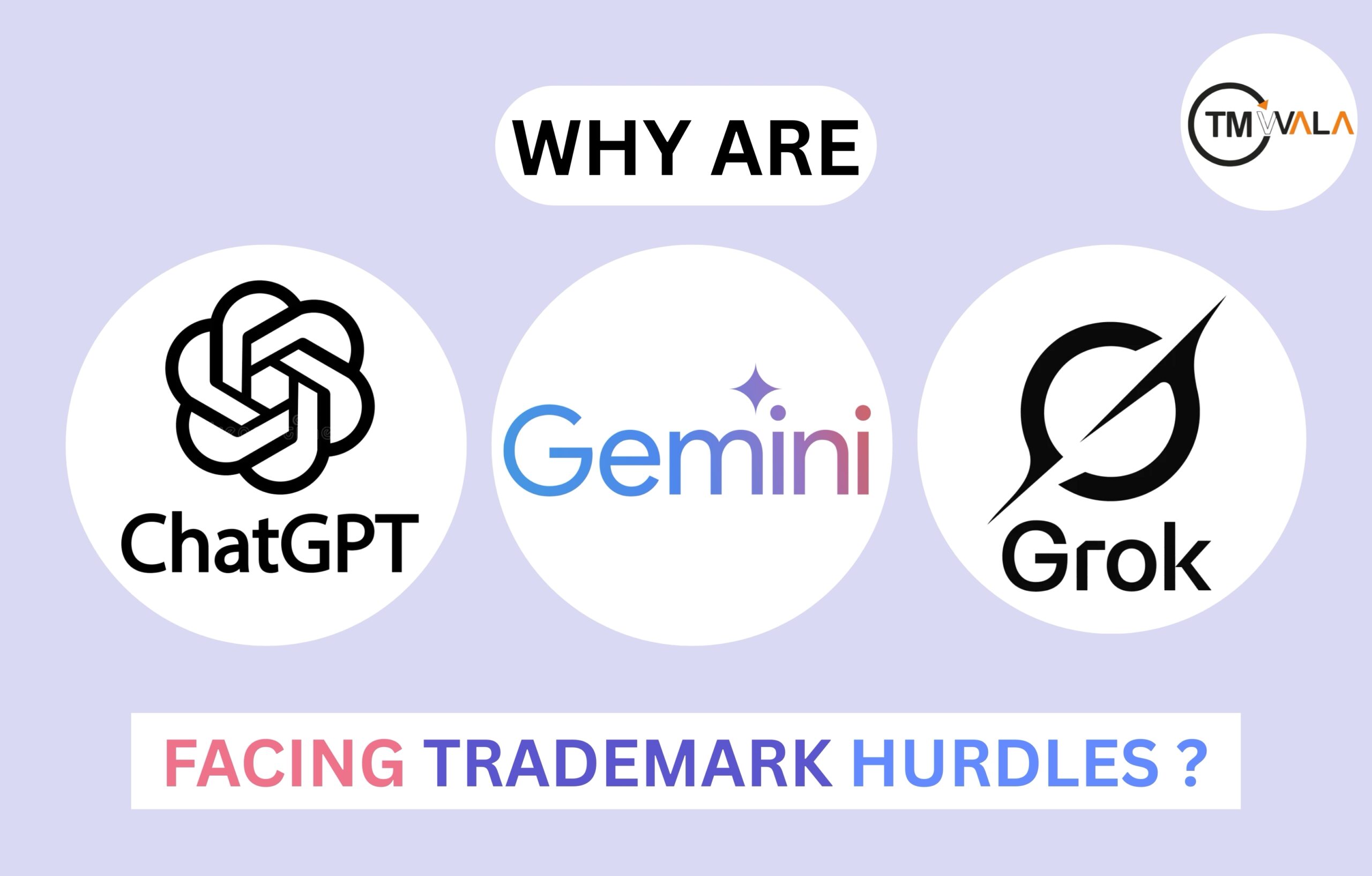
In India, trademark rights operate on the principle of “first to use” rather than “first to file.” This means that the rights to a trademark are granted to the party who can prove prior use in the market, regardless of who applies first. This fundamental rule has become particularly significant in recent cases involving major AI-based platforms attempting to register trademarks under Class 9 of the Trademark classification.
Global tech giants like ChatGPT, Gemini AI, and Grok have recently encountered legal hurdles while seeking trademark protection in India. Despite their international recognition, these platforms are facing opposition due to earlier trademark claims by local businesses. In this article, we will delve into the scope of Class 9 under the Trademark classification, explore the specific challenges these companies face, and analyse why India’s “prior user” principle creates roadblocks for some of the world’s most prominent AI brands.
Class 9 is a crucial trademark category for technology-driven goods and services. It encompasses various products, including AI software, downloadable and cloud-based applications, data processing systems, and various other digital technologies. For startups and tech companies, securing trademark protection under Class 9 is essential to safeguard their AI innovations, digital products, and brand identity, especially in India’s rapidly evolving and highly competitive tech landscape.
Google’s attempt to register the trademark “Gemini” for its AI platform in India has been formally opposed by Sun TV Network, the owner of the longstanding Gemini TV brand (in use since 1995 in Class 35).
Despite operating in different sectors, AI software versus television broadcasting Trade Marks Registry flagged a strong possibility of consumer confusion, particularly due to phonetic similarities and visual resemblance.
Key legal provisions invoked include:
OpenAI’s application to protect the “ChatGPT” trademark in India is currently opposed by Flaxxi AI, a Bengaluru-based startup that claims usage of the name since 2022 for its educational AI platform developed with IIT Jammu.
Flaxxi argues that their prior use and accrued goodwill should bar OpenAI from registering the same name, given India’s strict “first use” rule.
Elon Musk’s xAI is facing opposition from Groke Technologies, a Finnish marine software firm that holds the “Grok” trademark under Class 9 in several jurisdictions, including Finland. xAI contends that the brands serve distinct markets and have coexisted without issues in countries like Finland and South Korea.
Separately, in the U.S., a startup named Bizly alleges prior rights to “Grok,” claiming they filed for the mark in 2021. They contend that Musk’s use disrupted funding and triggered confusion, even though Bizly’s app was still in beta and not widely launched.
India’s DeepSeek AI has become entangled in trademark filings contested by multiple parties, indicating a potentially complex dispute over ownership of the “Deep Seek” name under Class 9.
The ongoing trademark disputes involving leading AI platforms like Google’s Gemini, OpenAI’s ChatGPT, xAI’s Grok, and DeepSeek AI underscore the complexities of navigating intellectual property law in India’s dynamic digital economy. These cases highlight how India’s “Prior User” doctrine plays a pivotal role in determining trademark rightsoften giving local businesses a legal advantage over globally established tech giants. The ongoing trademark disputes involving leading AI platforms like Google’s Gemini, OpenAI’s ChatGPT, xAI’s Grok, and DeepSeek AI underscore the complexities of navigating intellectual property law in India’s dynamic digital economy. These cases highlight how India’s “Prior User” doctrine plays a pivotal role in determining trademark rightsoften giving local businesses a legal advantage over globally established tech giants.
As AI continues to evolve and expand, especially within India’s thriving technology sector, securing early trademark protection under the appropriate class, particularly Class 9, is more critical than ever. Companies, both domestic and international, must adopt proactive trademark strategies that consider not only global branding but also local market presence and existing rights holders.
These high-profile cases serve as a reminder that in India, brand value is not solely determined by global reputation or innovation it is also grounded in timely, lawful, and strategic use within the local market.
Get started instantly
"*" indicates required fields

TMWala
Your one stop shop for all your business registration and compliance needs.
"*" indicates required fields
Choose your Entity Type
Non-MSME/ Large Entitie
Individual/ MSME/ Sole Proprietorships

₹9,000.00 Original price was: ₹9,000.00.₹3,999.00Current price is: ₹3,999.00.
Trademark Application @ ₹3999* (Premium Discounted Plan for MSME/Individual/Sole Proprietorships) Comprehensive
Government Fees
₹4500/-

₹9,000.00 Original price was: ₹9,000.00.₹3,999.00Current price is: ₹3,999.00.
Trademark Application @ ₹3999* (Premium Discounted Plan for Non-MSMEs/Large Entities) Comprehensive
Government Fees
₹9000/-
Choose your Entity Type
Individual/ MSME/ Sole Proprietorships
Non-MSME/ Large Entities
₹3,500.00 Original price was: ₹3,500.00.₹1,999.00Current price is: ₹1,999.00.
Government Fees
₹4500/-
₹3,500.00 Original price was: ₹3,500.00.₹1,999.00Current price is: ₹1,999.00.
Government Fees
₹9000/-
Choose your Entity Type
Individual/ MSME/ Sole Proprietorships
Non-MSME/ Large Entities

₹1,500.00 Original price was: ₹1,500.00.₹999.00Current price is: ₹999.00.
Trademark Application @ ₹999* (Basic Discounted Plan for MSME/Individual/Sole Proprietorships) Best-Selling, Economical & Easy

₹1,500.00 Original price was: ₹1,500.00.₹999.00Current price is: ₹999.00.
Trademark Application @ ₹999* (Basic Discounted Plan for Non-MSMEs/Large Entities) Best-Selling, Economical, Quick and Easy